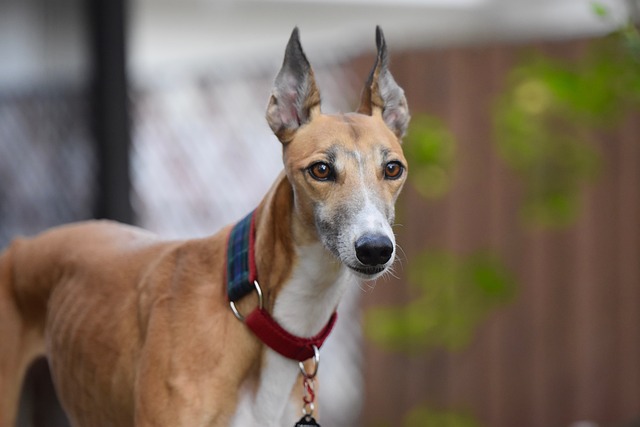
How do i train my dog to be obedient?
Watching your dog dart across the park ignoring your calls isn’t just frustrating—it can put them at risk near busy streets or public spaces.
Bringing home a new puppy is thrilling, but figuring out where to start training can feel overwhelming. Amidst all the skills to teach, one fundamental practice stands out as the absolute priority: establishing a consistent potty training routine. Let me explain why this foundational step is crucial—and how to do it right while staying compliant with local laws.
First, understand that potty training isn’t just about keeping your home clean. It’s the first way you teach your puppy boundaries, communication, and trust. In many Western countries, proper pet hygiene is not just a courtesy—it’s part of being a responsible owner. Plus, a consistent routine helps your puppy adapt faster, reducing stress for both of you.
Start by creating a schedule. Puppies need to relieve themselves after eating, sleeping, playing, or waking from a nap. Take them outside immediately after these moments, choosing a specific spot in your yard. Use a simple command like “go potty” each time—consistency helps them associate the action with the words, and it’s a habit that aligns with good pet ownership norms in the West.
Pay close attention to their body language. Sniffing the floor, circling, or whining are signs they need to go out. Act quickly when you notice these cues—gently lead them outside or carry them if they’re small. When they succeed, praise them enthusiastically with a treat. Positive reinforcement is key here, as punitive methods are widely discouraged in the West due to animal welfare guidelines.
Accidents will happen, but how you respond matters. Never scold or punish your puppy, as this can damage trust and even lead to sneaky accidents. Instead, clean messes quietly with an enzymatic cleaner to remove odors—important for maintaining a clean home and respecting neighbors in shared living spaces, common in many Western neighborhoods.
Crate training can be a game-changer, but ensure the crate is appropriately sized—just big enough for them to stand and turn. In the West, crates are seen as safe spaces, not punishment, so fill it with a cozy bed and treats. Remember, local animal welfare laws may regulate crate usage, so never leave your puppy confined for extended periods without proper breaks.

Timing is essential for potty training. A 2-month-old puppy typically needs to go out every 2 hours, but this increases as they age. Stick to the routine religiously, even at night—setting an alarm if needed. Consistency not only helps training but also reflects responsible pet ownership, which is valued in Western communities and aligns with many local ordinances.
Incorporating leash training early is also wise, though potty training remains the first step. When taking your puppy outside, use a proper leash (not a retractable one in areas where they’re prohibited) and follow local leash laws. Many Western cities require dogs to be leashed in public, so starting this habit early ensures compliance and safety.
Another critical aspect: socialization must happen safely. Before introducing your puppy to other dogs, ensure they’ve had their initial vaccinations as required by local laws. In the West, rabies and distemper vaccines are often mandatory, and skipping them can lead to fines or legal issues. Positive social interactions with people and environments (like gentle car rides or quiet park visits) build confidence without violating health regulations.
Why prioritize potty training above all else? Beyond practicality, it establishes you as a consistent, reliable owner—a foundation for all future training. Once your puppy trusts that you’ll meet their needs, they’re more receptive to learning commands like “sit” or “stay.” This trust is at the heart of the human-canine bond celebrated in Western cultures.
Remember, every puppy learns at their own pace. Avoid comparing them to others; focus on their progress. Small wins, like going to the door when they need to go, are huge milestones. Celebrate these moments—positive reinforcement is not just effective training, but a reflection of the kind, humane approach to pet care widely embraced in the West.
Staying compliant with local dog ownership regulations is equally important. Research your city or state’s laws on pet waste disposal (many areas require you to clean up after your dog in public spaces), leash regulations, and vaccination requirements. Incorporating these into your training routine from day one ensures you’re a responsible owner in the eyes of the law and your community.
In the end, starting with potty training sets the stage for a harmonious life with your puppy. It’s about more than just a clean home—it’s about building a relationship based on trust, respect, and responsibility. By being patient, consistent, and mindful of local regulations, you’ll not only have a well-trained companion but also a happy pup who thrives in their new environment.

Watching your dog dart across the park ignoring your calls isn’t just frustrating—it can put them at risk near busy streets or public spaces.

New puppy owners often find themselves rushing to clean up accidents before they set in, and that’s where puppy pad training becomes a game-changer.

If you've noticed your dog's waistline disappearing and your veterinarian has mentioned those few extra pounds, your first instinct might be to simply reduce the amount of food in their bowl.

Training a dog to use a designated spot indoors isn’t as daunting as many new owners fear, but it does take consistency and an understanding of your pet’s needs.

That moment of dread on a walk is all too familiar for many new dog owners. You see another dog approaching down the sidewalk of your neighborhood

If the sight of another dog on your neighborhood walk makes your heart sink as your own dog erupts into a frenzy of barking and lunging, you're not alone.